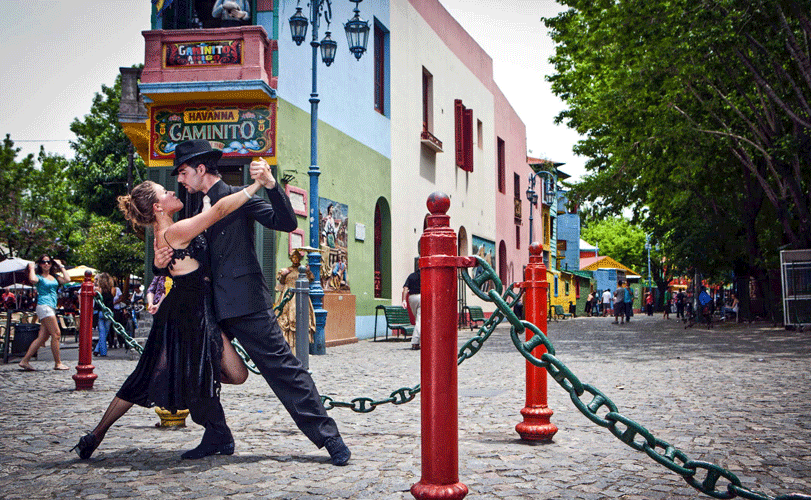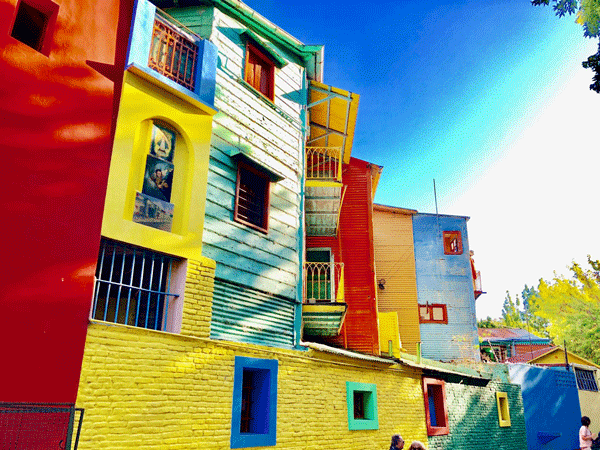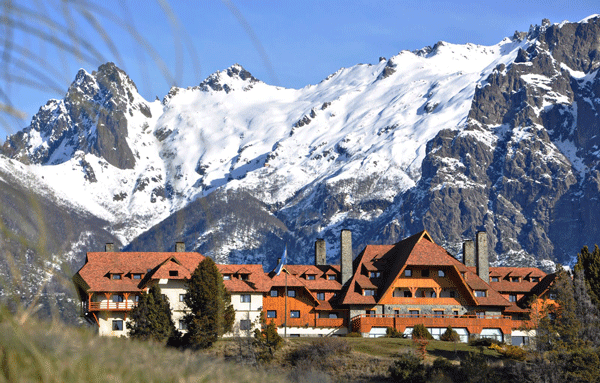
Patagonia Bound
I began my journey to Argentina last December. I had a couple of friends in Buenos Aires, one Argentinian and one American friend living there. As I went through immigration at Ezeiza International Airport, a charming officer gave me a warm welcome, “Bienvenida a Argentina!” and I wondered if this was a good omen.
I tried changing my dollars to pesos but the line was incredibly long, so I went to my friend’s place and left my luggage there. I tried to find a casa de cambio to exchange my dollars, only to find out that they are only open Monday-Friday from 10:00 am – 3:00 pm. I had to borrow money from my friend for the first few days. Since US dollars are in high demand, it is recommended that you exchange your dollars at Banco de la Nación, as soon as you land at Ezeiza airport.
Then I headed to the Museo Nacional de Bellas Artes on Avenida Libertador. The museum contains “The Kiss” sculpture from Auguste Rodin and beautiful oil paintings by Paul Cézanne, Vincent Van Gogh, Édouard Manet, and local Argentine artists. At night, my host friend and I headed to the San Telmo neighborhood and saw a live carnival performance whose African traditions had been adopted by Argentinians during the 18th century. We then went to a small, local bar where there was a tango show, known as a milonga. There, I learned that tango is becoming a rather rare tradition. While watching the show, we drank delicious local wine and saw a couple dance sensually in front of us.
As I walked through Buenos Aires, I was struck by the beauty of the small quaint neighborhoods. Even in the poor barrios like “Boca,” I could not see any trash on the streets. I also felt the relaxed lifestyle of people despite the nearly 50% inflation throughout 2018. Some of my Argentine friends said that people tend to conceal their grievances, but during the 10 days I was in Argentina, I was addressed with kind and cheerful people at all times. Another cultural aspect is that nightlife in Argentina goes on for looong – people stay out all night in clubs until 6:00 am and start going out as early as Tuesday. I tried to follow through the Argentinian tradition of amanecerse en el boliche or “going to the club until sunrise,” but I was too tired to continue dancing.
My next destination was Patagonia, where I saw the most beautiful scenery of my life: the Perito Moreno glacier, the lakes on the border with Chile, and all the beautiful landscapes that the region offers. In Calafate, I stood on the viewing platform that overlooks Lago Argentino. There, I was so fortunate to see two chunks of ice breaking off the main glacial whose sounds resembled explosions. According to local guides, these pieces of ice have been falling at an accelerated rate during the last few years, perhaps due to global warming.
Later, I took a plane to Bariloche, just to find myself in the middle of hundreds of teenagers who had just finished the school semester. I was probably 18 years older than them and did not enjoy the hectic activity downtown, but life was about to surprise me. As I arrived to the room I booked on Airbnb and my host Alex learned that I was originally from Mexico, she was so excited that she showed me all the Mexican decorations in her apartment. “Look, I’ve never been to Mexico but I adore Mexico,” she said.
After visiting the marvelous scenery of Bariloche, I came back to the apartment and told her that the tour guide said over the bus microphone, “Where is the young woman that came by herself? Pobrecita! Toda solita!” and that I did not how to respond. I said, “I am not pobrecita and am ok being solita. In America, you can complain about these things but I don’t know the culture or traditions here.” Alex turned red. She immediately called the owner and complained, telling them that I had been bullied. I learned from her that being a woman in Argentina means standing up for oneself. As I left, Alex gifted me an embroidered heart made out of Mexican fabric, saying, “Please, let me give you my heart.” And so I packed my bags and went back to Buenos Aires with love and courage.
There, I reunited with my American friend who introduced me to more locals. Argentinians often told me how frustrated they were with the economy and about the lack of meritocracy in their professional fields. One of them told me he just lost his house due to inflation. But despite the economic crisis, Argentina is one of the countries where I have felt the most welcomed and accepted. Money does not buy happiness.


